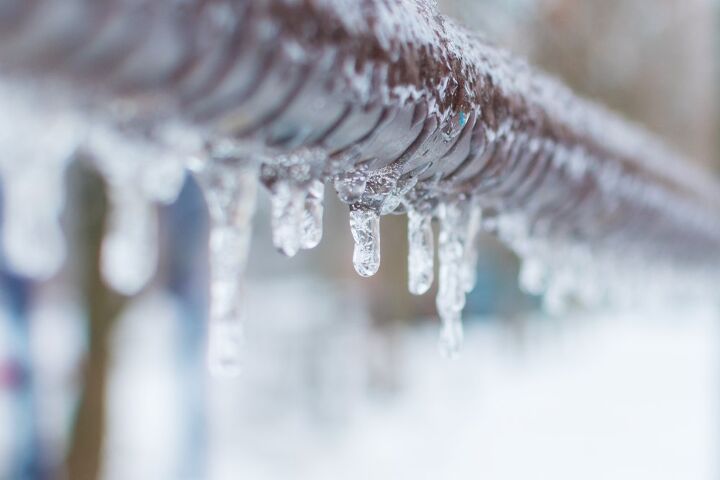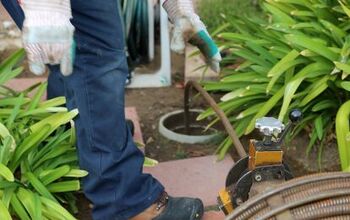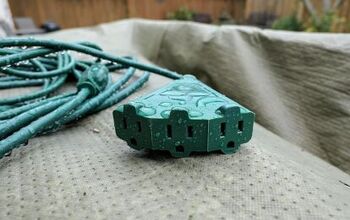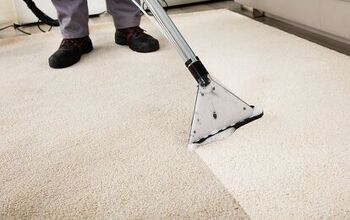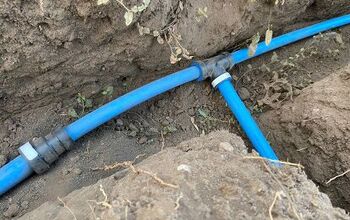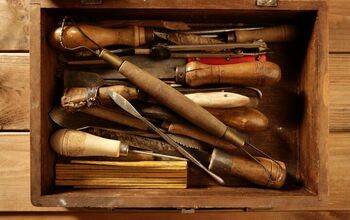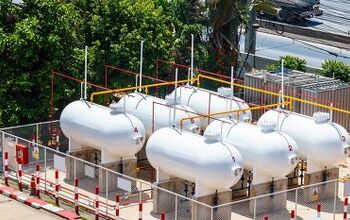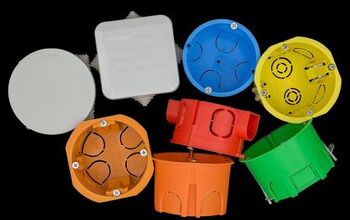Can Sewer Lines Freeze? (Find Out Now!)

Sewer lines are responsible for taking the used wastewater away from our homes and directing it to the local municipal treatment plant. Sewer lines are just like any other pipe and usually have liquid coursing through them. However, cold temperatures and harsh winters can make it difficult for liquid to move through the pipe without freezing.
It is possible for sewer lines to freeze, especially if outside temperatures drop below 32 degrees F. When the water freezes, it expands, adding pressure to the pipe’s walls. A frozen sewer line, like any pipe, has the potential to crack and burst, leading to extensive repairs.
Luckily, there are many preventative steps homeowners can take to protect their sewer lines from freezing. Adding insulation, covering vents, and keeping a constant stream of water through the pipes can help keep water moving and prevent sewer lines from freezing and bursting.
Do You Need a Sewer Installation or Repair Contractor?
Get free, zero-commitment quotes from pro contractors near you.

How Long Does It Take For a Sewer Line to Freeze?
In very cold temperatures, sewer lines can freeze in a remarkably short amount of time. On average, in temperatures below 20 degrees, it takes just 4 or 5 hours to freeze and burst completely. A frozen and burst sewer pipe can be a disaster and can mean costly and extensive repairs.
How Long Can It Take to Thaw a Frozen Pipe?
If your sewer pipe has completely frozen, it will take a fair amount of time to allow the pipe to thaw, especially if the outside air temperature is still cold and the ground is still frozen. It can take about 12 hours to fully thaw for exterior pipes along the wall, especially if your basement is not insulated. This reason is why it is extremely important to take the right precautions ahead of harsh and frozen weather to ensure your pipes stay thawed.
How Do I Know If My Sewer Line Is Frozen?
A frozen sewer line can be a big problem for a homeowner leading to extensive and extremely costly repairs. Recognizing the signs of a frozen sewer line is the first step toward thawing the line and getting running water moving through the line again. Some common symptoms of a frozen sewer line include:
- No Running Water – Turning on the tap with nothing coming out of the faucet can mean you have a big problem, especially if it is cold outside. When the ice blocks the pipes bringing water into your home, you will not have running water pouring from the tap. If your main water line is frozen, there is a good chance your sewer line is frozen too.
- Frost Pipes – If you have access to see your sewer pipe and it appears frosty or covered in ice, there is a strong chance your sewer line is frozen. In this case, you will be better served to call a plumber to help remedy the situation. Adding hot water or saltwater to the frozen line will only add to the ice build-up and compound the problem.
- Strange Smells – If the sewer line freezes, not only is the water trapped, but the smells and odor are trapped too. Strange sewage smells coming from drains could indicate that wastewater is not free to flow through the mainline. If you cannot immediately locate the source of the foul odor, it may mean that your main sewer line is frozen.
- Odd Sounds – Hearing gurgling noises coming from your drains and pipes may mean that you have a frozen sewer line. Gurgling noises will sound louder as the ice begins to thaw and water moves through the open channels. Although this could be a good sign that the water is moving again, it is a good idea to call a plumber to ensure that your pipe wasn’t damaged or burst during the freeze.
- Leaking – If any of your walls or flooring are damp from a leaking pipe, it could be a sign that your pipes have burst. Frozen water within the pipe can cause the line to expand too much, breaking the pipe. A burst pipe can lead to a dangerous flood, especially wastewater and sewage are flooding into your home. If you notice leaks, it is best to call a plumber right away.
Is a Frozen Sewer Line Dangerous?
Having a frozen sewer pipe can spell disaster for your home and can damage your house. A frozen pipe means that water can back up, and pipes can pour out from other places throughout your home. Plus, water may pour directly from your tap.
In a worst-case scenario, frozen pipes can burst, which can cause flooding in your house. Because a sewage pipe is responsible for transporting sewage and wastewater, you risk having sewage throughout your property, which runs the risk of spreading and exposing you to possible disease. Plus, a burst pipe can often lead to a much more extensive and costly repair.
How Can I Prevent Sewer Lines from Freezing?
Luckily, you can take easy preventative steps to prevent your sewer lines from freezing and potentially rupturing. To help keep your sewer lines thawed and protected through the winter, you can:
- Insulate – Keep your pipes, especially sewer pipes, insulated from the cold. Sometimes simply wrapping exposed pipes with moldable and pliable foam is enough to keep them protected from the cold.
- Seal Vents – Ensure your outside vents are sealed. Cold outside air coming through the vents can make pipes freeze more quickly.
- Run Water – When the weather dips to below-freezing temperatures, make sure to run the water to keep the water fluid. It may help to keep just a slow stream of water through, particularly cold nights, to ensure ice doesn’t have a chance to form.
- Clear Clogs – Keep your drains clear so that if you need to run hot water or saltwater down the drains to free frozen sewer pipes, the water will have clear access to any ice jams.
How Can I Fix a Frozen Line?
There are two commonly accepted ways to repair a frozen sewer line. Both methods may work, and it can help to do one method followed by the other to achieve the best results. When fixing a frozen sewer line yourself, you can either use salt water or warm water.
- Saltwater – Running salt water down your drain can help to fix frozen pipes. Think of it as putting salt on icy sidewalks to melt the ice. By pouring a saltwater mixture down the drain, you can melt enough of the impacted ice to allow wastewater to flow again.
- Warm Water – As simple as it may sound, you can unfreeze pipes by running hot water down the drain. Try to heat a large pot with water on the stove. Once it begins to boil, you can slowly pour the hot water down the drain. Adding hot water may be just enough to break up the ice and allow your sewer line to thaw.
Do You Need a Sewer Installation or Repair Contractor?
Get free, zero-commitment quotes from pro contractors near you.

Related Questions
Will home insurance pay for a frozen or broken sewer line?
If you have home insurance, most policies will limit the amount of coverage allocated to “other structures.” Usually, sewer lines, because they are on your property, are considered other structures. Most policies will cover 10% of what your full home is valued at and insured for.However, your sewer line repair may not be covered by insurance if the damaged line is caused by negligence or the owner’s fault. A sewer line that is clogged or backed up or a physically damaged line will not be eligible for home insurance repair or replacement.
How deep are sewer lines?
Sewer lines are buried underground to keep them protected from changing temperatures and possible physical damage. A sewer line will be around 12 inches to 30 inches deep most of the time, especially if it is buried in a moderately warm part of the world. If you live in a particularly cold climate, some pipes will be buried as deep as 6 feet underground. When the pipe is buried further below the ground, it protects the pipe and its contents from fully freezing solid in the cold winter months.
Related Articles

We are a team of passionate homeowners, home improvement pros, and DIY enthusiasts who enjoy sharing home improvement, housekeeping, decorating, and more with other homeowners! Whether you're looking for a step-by-step guide on fixing an appliance or the cost of installing a fence, we've here to help.
More by Upgraded Home Team



